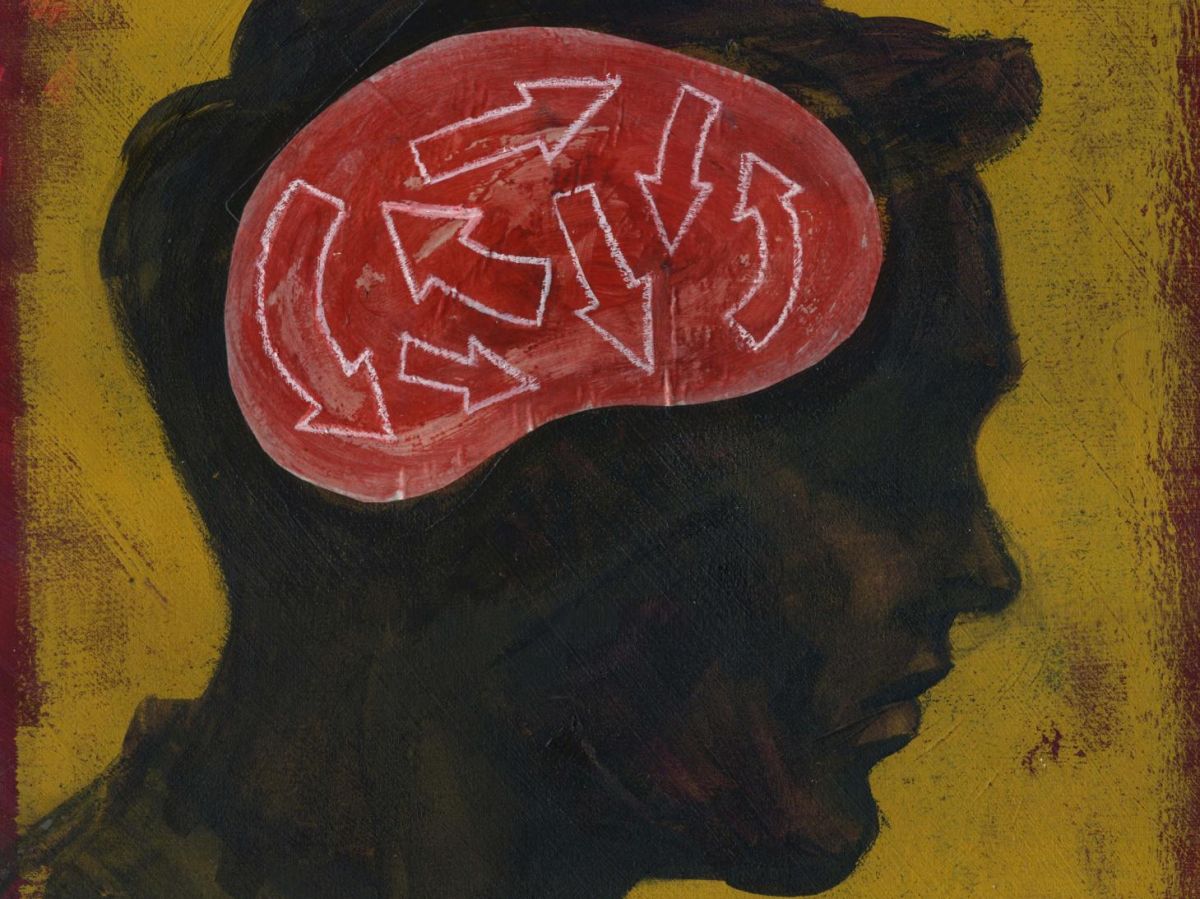Designated the national cause of the year 2025, the mental health of young people continues to deteriorate, reinforced by a feeling of widespread loneliness. In 2023, 63% of young people aged 18 to 24 reported suffering from loneliness. according to an IFOP survey.
"It is an age group which corresponds to entry into working life, with its share of difficulties, explains Marine Starostka, clinical psychologist and head of Fil Sante Jeunes, a listening and prevention system. But an anxiety-provoking political and social climate, coupled with a lack of access to healthcare for young workers, can quickly create a feeling of loneliness. And that opens the door to ruminations.
What are ruminations?
For the psychologist: "Ruminating is like throwing a hamster in a wheel, it spins faster and faster, without being able to stop.". Above all a universal defense mechanism, ruminations, these Think repetitively, allow for the integration of sometimes difficult situations, and participate in decision-making.
"They're called reflexive ruminations. It's something deeply human, something we all experience." Jean-Luc Martinot, research director at Inserm, tells us. This happens in the face of specific circumstances, such as a breakup.Marine Starostka added: The young teenager will call us because he is going over everything he should have done to avoid the separation. This is normal..
Initially a warning signal, these repetitive thoughts can take up more and more space and become invasive, even pathological.
Read alsoPsychedelic Medicine: A Promising French Clinical Trial to Treat Depression with Psilocybin
“We try to do our own self-therapy.”
When difficulties drag on and solutions are lacking, we try to verbalize our thoughts internally. “We try to do our own self-therapy,” illustrates Marine Starostka. Without success, we ruminate, and these ruminations become " concerned », describes Jean-Luc Martinot, when the individual " fails to take a step back" on the situation. This feeling of going around in circles is often amplified by a negative context, individual, such as a precarious situation, or collective,ecoanxiety For example.
The third type of rumination described in the literature is of a "depressive" nature. In this last case, common among young people entering adulthood, the ruminations become similar A "drepetitive dark thoughts about one's situation or future, explains Jean-Luc MartinotThey can become a symptom of a psychiatric disorder.
“Entry into adulthood is a particularly risky period”
Since ruminations are completely subjective, there is currently no way to measure them. Jean-Luc Martinot and his team at Inserm attempted to associate them with functional brain networks to better identify and prevent them. Their results were published in the journal Molecular Psychiatry.
His team monitored the spontaneous brain activity of 595 young people at rest. The first images were taken at age 18. During this neuroimaging test, participants were given no instructions and were left to their own devices. As a result, the "ruminator" profiles allowed themselves to ruminate.Jean-Luc Martinot.
The youth completed a factual questionnaire to measure the frequency and type of their ruminations. Using a mathematical model, the researchers cross-referenced the values of the questionnaire responses with the values of brain regions to associate each type of rumination with an activity network (i.e., a set of distinct brain regions that constantly communicate information with each other).
Read alsoThe mental health of the French, especially young people, remains poor.
The examination was then repeated on the same participants, this time aged 22. "Ruminations have been found to evolve over time and to be linked to psychiatric symptoms. This highlights the fact that emerging adulthood is a particularly high-risk period." confirms the researcher.
The team showed that the activity of a network associated with anxious ruminations was also associated with certain so-called "internalized" symptoms (anxiety, nervousness, withdrawal, etc.). The activity of a network associated with "depressive" ruminations was also associated with "externalized" symptoms (agitation, irritability, recourse to acting out, to substances, etc.).
"At this age, some young adults had a decrease in "worried" ruminations in favor of "reflexive" ruminations," explains Jean-Luc Martinot. These results suggest that between the ages of 18 and 22, the period of transition to adulthood, some young people have acquired a better ability to adapt to negative emotions and a better aptitude for decision-making. But others have worsened worrying and depressive ruminations.", he tempers.
Support as soon as possible
This study emphasizes the importance of prevention. Often, young people call when their situation becomes unbearable,” Marines are to be deplored Starostka: The results show that ruminations are a warning sign that should be taken seriously.
"The earlier young people are taken into care, the more we avoid the development of ruminations into symptoms of a major depressive state, for example.", which, even treated, has a high recidivism rate, recalls Jean-Luc Martinot.
“With the Fil Sante Jeune, we put reality, concrete solutions back into the minds of young people.”, explains the psychologist, while admitting that this device is not sufficient. “We need to invest resources in preventive school medicine.”. For researchers, young adolescents should be taught to understand their mental ruminations and their evolution, to give them the means to warn as early as possible.
Help and Support Resources
– Youth Health Line: Listening, information, and guidance service for young people aged 12 to 25 on physical, psychological, and social health issues. Anonymous and free, every day by phone at 0800-235-236, from 9 a.m. to 11 p.m. every day. Also available by chat from 9 a.m. to 10 p.m., on Filsantejeunes.com
Night Line France: Listening service by and for students, nightly and free. By telephone at 01.88.32.12.32 and on Nightline.fr
Support student info: Nightline lists all free psychological support services available throughout the country. Student-support.info
– 31-14, national suicide prevention number: Toll-free number, 24/7. Confidential listening service provided by professionals. It is intended for people suffering from suicidal thoughts, but also for their loved ones and those bereaved by suicide.
– In case of emergency : call 15 (SAMU) or 112 (European number).
